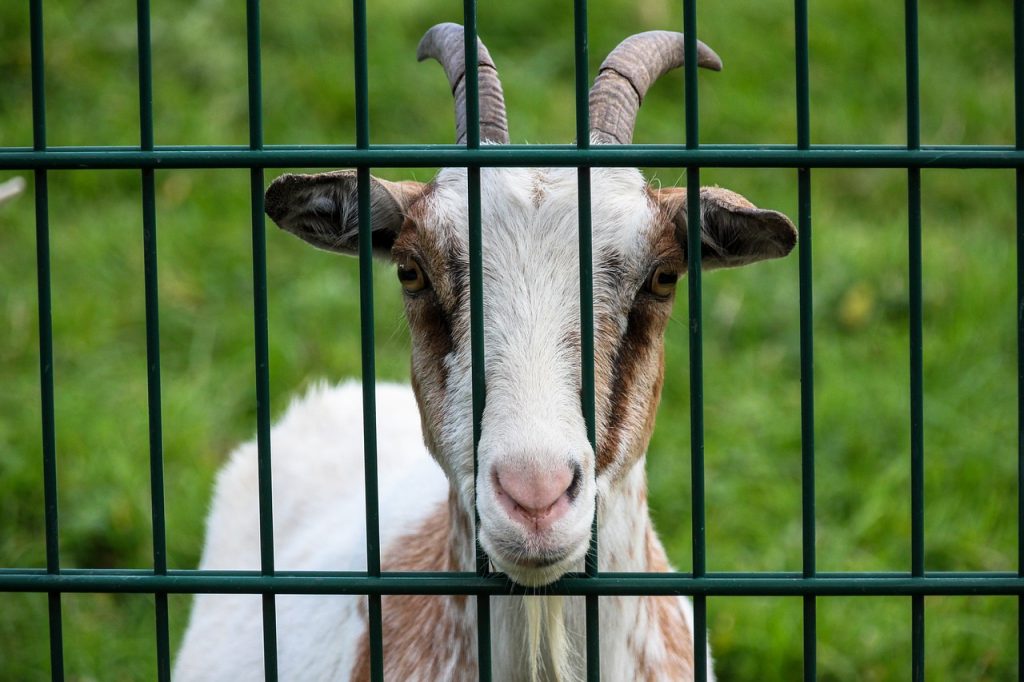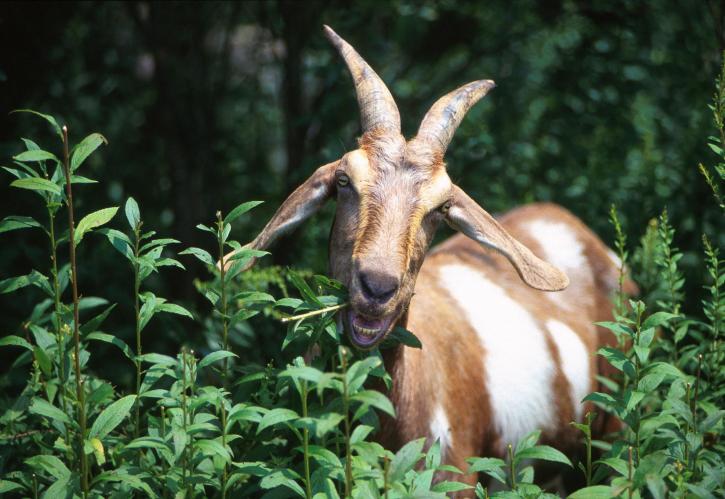Mowing Alternative: Lawn Goats
BY DANIELLE BRADLEY | OCTOBER 22ND, 2019 | CREATIVE GARDENING, HOME & GARDEN, LAWN CAREIf you’ve been thinking of ways to ditch the gas-guzzling lawn mower in favor of an environmentally friendly way of mowing your lawn, you’re hardly alone. Sure, you could use an old-fashioned reel lawn mower, but another lawn care option threatens to put mowing crews out of business: lawn goats.
But before you head to the livestock auction, take a minute to learn about these mammalian mowing machines and decide if they’re right for you. You may want to start out by renting a goat. A simple Google search reveals that rent-a-goat businesses are everywhere, spinning the labor of grazers into gold.

How to Rent a Lawn Goat (or Two)
- Look online for rent-a-goat operations near you. Or call a farm supply store. They can put you in touch with small farmers with goat herds.
- Call any cheesemaking dairy to see if they have dairy goats to rent out for a few days.
- Let the goat farmer know what you expect. Explain the size of your property, what plants you want eaten, which you don’t.
- Move all outdoor furniture, vehicles, and anything you don’t want climbed on or destroyed by goats. Keep pets inside while the goats are working.
- Make sure fencing is secure and the goats have plenty of water.
Once the job is done, rake up and compost the goat droppings.
What Goats Eat

Goats are not exactly the lawn mowing masters people like to make them out to be. Your average goats will eat everything but grass before they even glance down at the turf beneath their hooves. Goats eat poison ivy, poison oak, brambles, and invasive kudzu with gusto. They’ll pull branches from trees and take down saplings through a combination of trampling and devouring. Think of them as a string trimmer with no boundaries, which makes them extremely effective at brush control. When you hear about Google renting goats to mow its Mountain View, Calif., campus, it’s a little misleading. The goats are not creating a manicured lawn, but are rather being used for their abilities to clear brush efficiently.
In addition to not being selective, goats are also not very savvy about what they shouldn’t eat. They’ll destroy your ornamental flower beds and strip the bark off trees, killing them. But they will also eat poisonous plants, which can mean killing themselves. Tammy Dunakin of Rent-a-Ruminant in Seattle laments that goats “won’t eat tin cans or other litter. Only paper and vegetation,” she says, adding that the herd works on their own time: “goat time.”
Getting Your Own Goats
If you still think goats are a sensible approach to lawn care for your yard, then make sure you understand a few critical facts about them. First, you’ll need more than one. Goats are social animals that belong in a herd. A solo goat is a sad, lonely, and shockingly loud creature. Let’s say you want a pair of goats to manage your property. If you want them to perform a stellar job of managing your lawn, you’re going to have to provide them with a few essentials.
Good fencing makes good neighbors and good goats. It’s critical for controlling what the animal eats. Electric net fencing is ideal because you can move it around to do rotational grazing and use it to protect trees and flower beds. Goats need lots of water, so they need a bucket close by at all times. And as much as you want your goats to focus all their efforts on your yard, they’ll need another food source, too. Most goat owners feed supplemental pellets to make sure the animal is getting enough nutrition.
Goats’ Special Needs
Goats evolved to eat a wildly varied diet, and grass alone isn’t sufficient. They also need a mineral block similar to a salt lick but specially formulated for goats. Goats need their hooves trimmed at least once a month, so you’ll need to learn how to handle hoof trimming tools and rowdy animals. Finally, goats need a warm, dry place to shelter from rain and sleep at night.
Goat lawn care is not for everyone, but if your property is riddled with blackberry brambles, brush, and other nasty overgrowths, it may be for you. On the other hand, if you’re just trying to keep the weeds under control, you may be better off with backyard chickens.